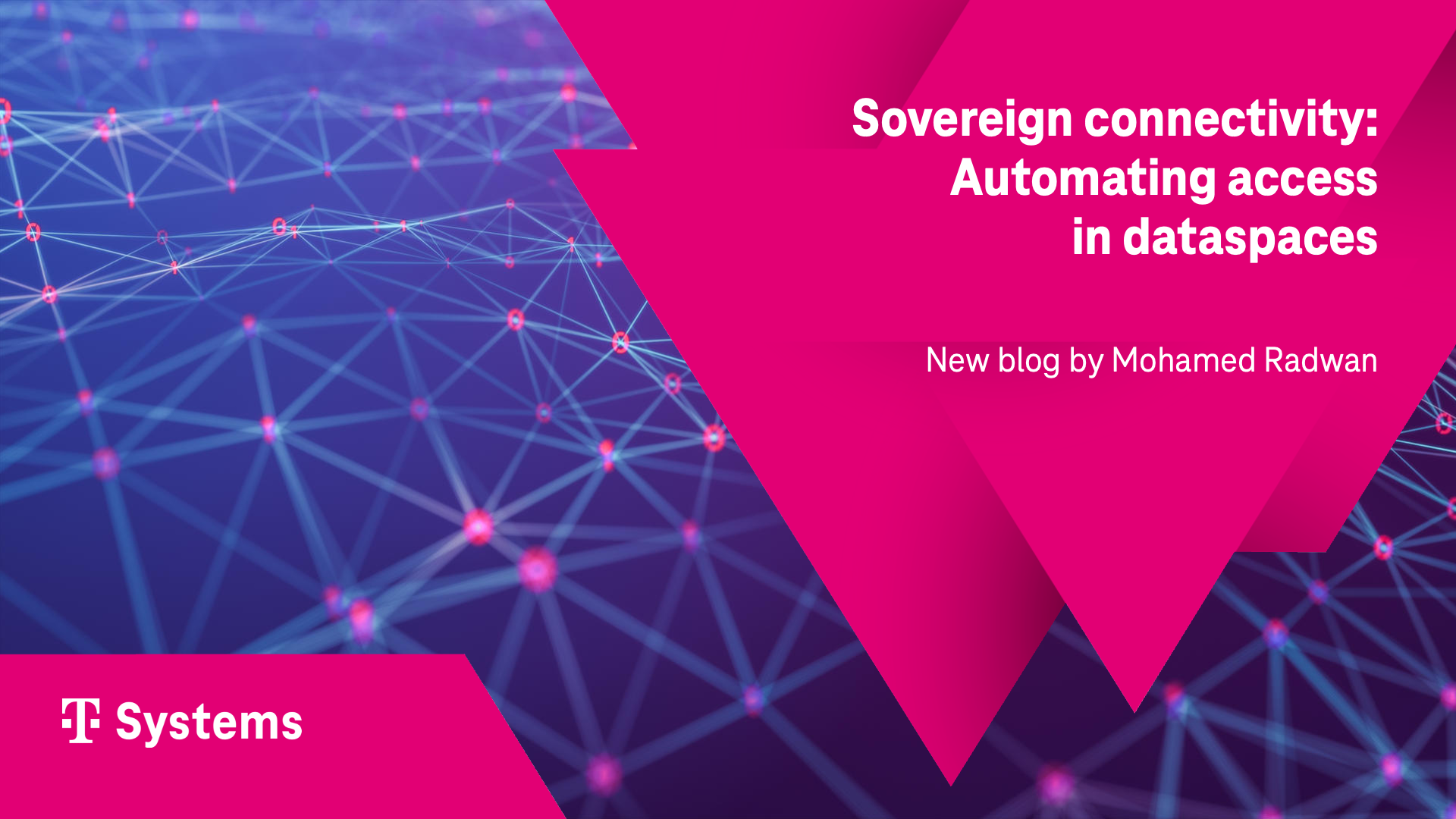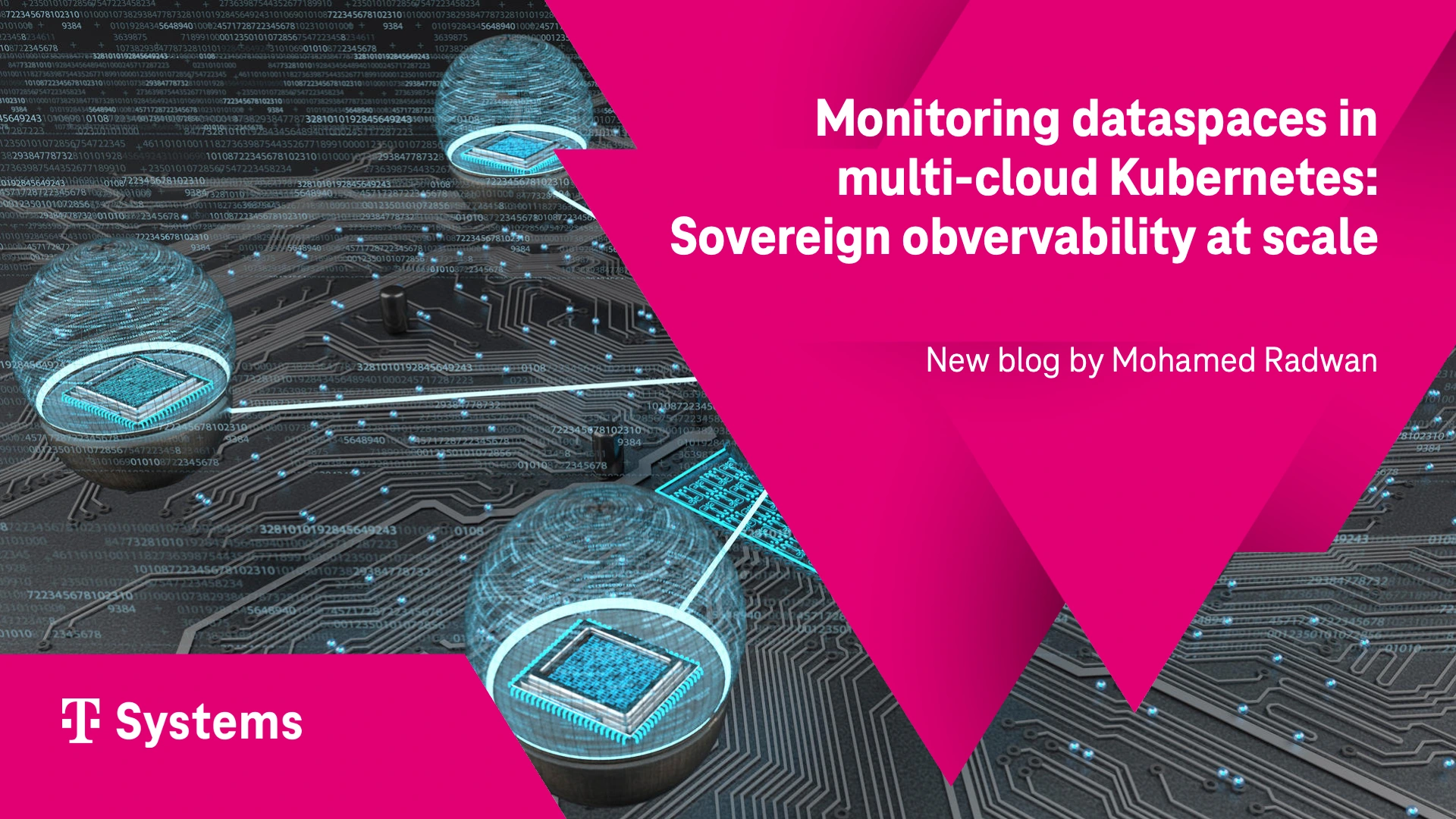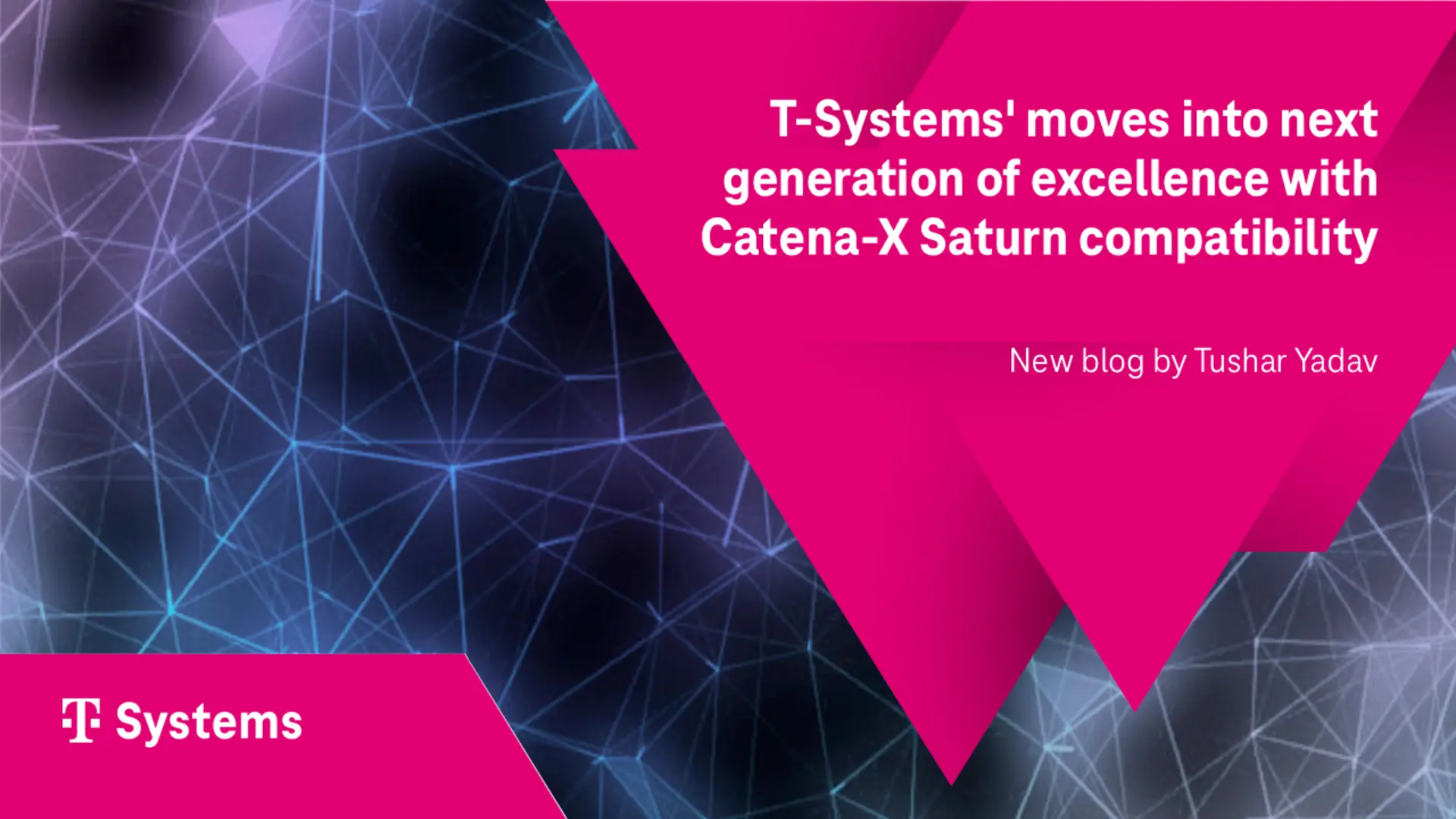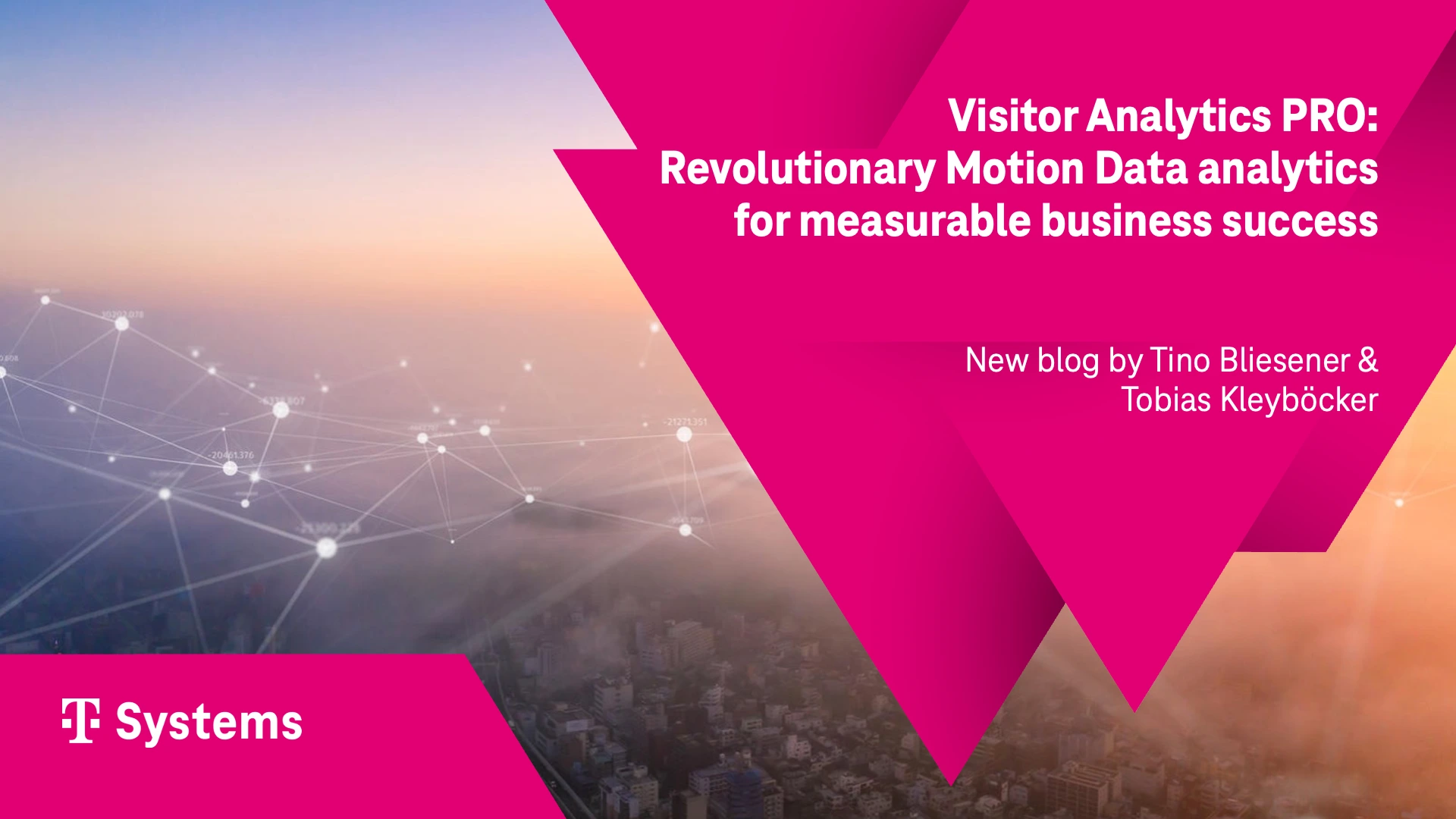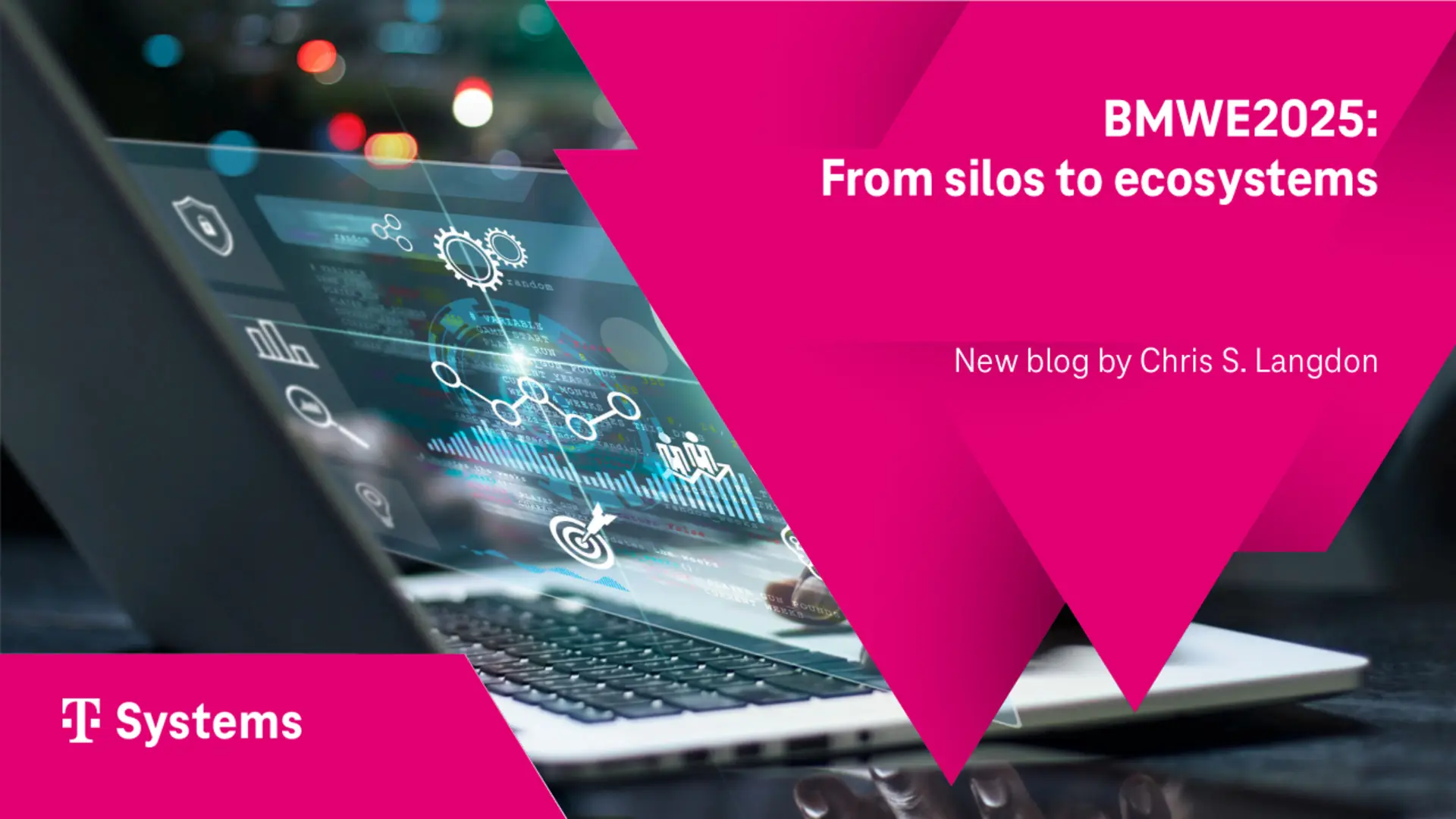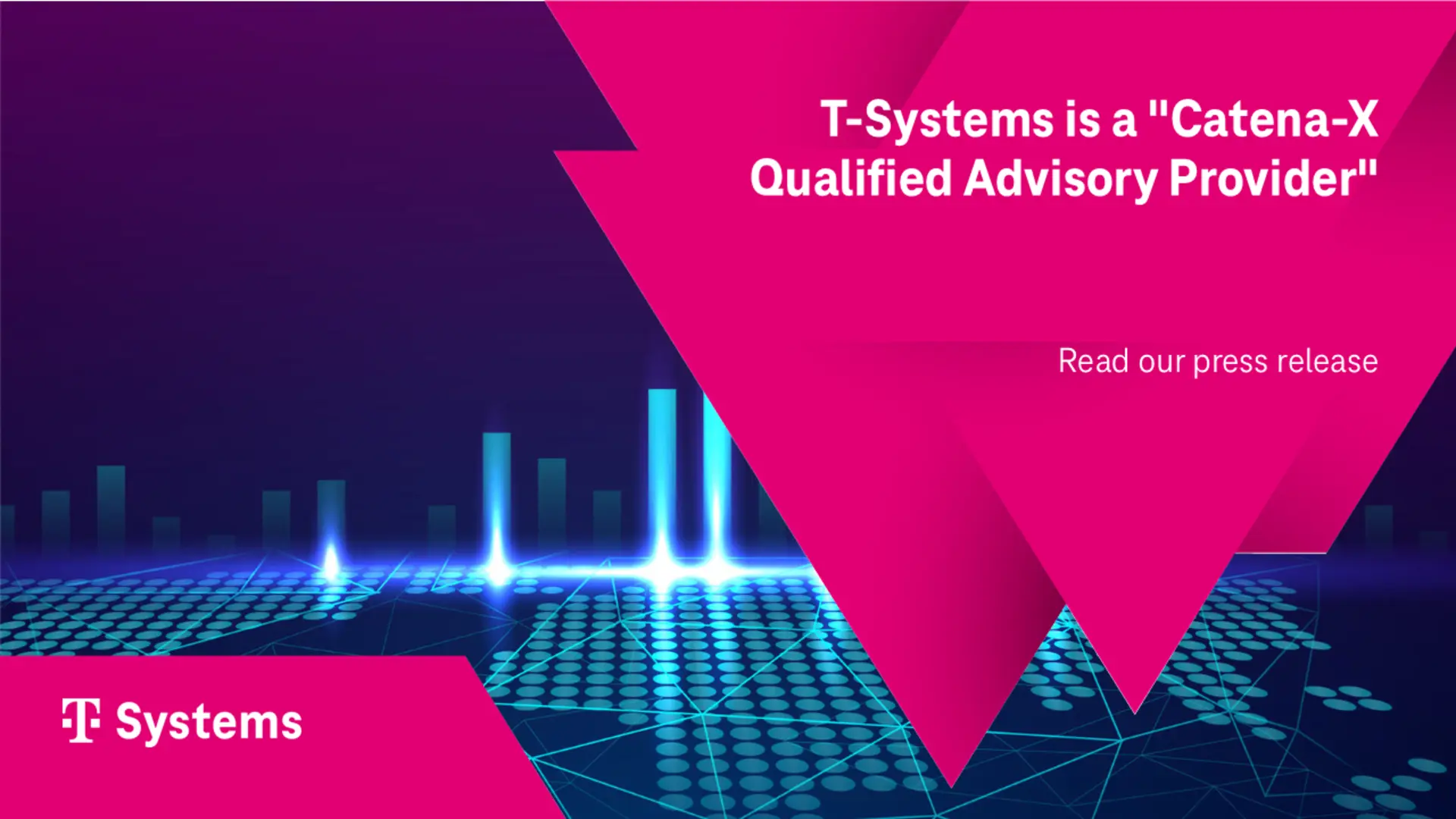Statistics Austria in cooperation with the Austrian Statistical Society gathered high-level experts from research, public adminsitration and economy in the frame of the 3-day conference, Austrian Statistics Days 2023. Nina Popanton, Business Development Executive at Telekom Data Intelligence Hub, shared T-Systems position in the data economy and the potential of dataspaces for more transparency and higher data availability in the European Data Ecosystem.
Image 1. Nina Popanton (TSI), Marcos Moschovidis (Green Data Hub), Clemens Böhmer (weXelerate), Marcus Hudec (Data Technology GmbH)
Radical collaboration between diverse stakeholders in Austria and the EU
Tobias Thomas, Director General of Statistics Austria opened the event, highlighting the strong growth of data assets and their importance for evidence-based decision making - especially in times of multiple crises. He also emphasized and encouraged to find new ways to better exploit the existing “data treasuries” - while complying with new legal regulations. Andreas Futschik, President of Austrian Statistics Society additionally pointed towards an ethical interlinkage and collaboration between economic, political and societal players within the diverse ecosystems.
Martin Polaschek, Austrian Federal Minister for Education, Science and Research elaborated on the fact that data are the basic resource for statistics, thus for science and research, but also for politics and economy to make better decisions. As he pointed out, data quality is the most important factor for valid results. But also the availability of different data assets – in that manner, Austria made an important steps with its Austrian Micro Data Center, which makes data from federal administration GDPR-compliant available for research. He also highlited the Austrian socio-economic panel (ASEP), financed for five years by Fonds Zukunft Österreich, fostering data-driven research. Those are just a few among Austrian successes in the field of data innovation.
Image 2. Martin Polascheck during his speech at Austrian Statistics Days 2023
Data strategies to harness the power of data
Austria is still lacking a national data strategy, which has highest urgency according to speakers and participants at the event. Mariana Kotzeva, Director General at Eurostat, described how official statistics have changed over the years and centuries and depicted that throughout history, many innovations were elaborated that weren’t received by society because the communications were not sufficiently performed – like in the case of a US National Data Center in 1967.
Image 3. Mariana Kotzeva during her presentation on the role of official statistics in data ecosystems
In our times of the fourth industrial revolution, accompanied by buzzwords lime post-truth and alternative facts, the importance of statistics enormous. She also described how the EU Data Strategy is reshaping the data landscape, new roles and actors are arising – like data intermediaries – and new legal acts, like Data Act and Data Governance Act enable stakeholders for more transparency and responsibility for data usage and resulting algorithms and other products and services.
Dataspaces as key enabler for safe innovation
Kotzeva highlighted in her talk that provision and usage of data in safe environments, like dataspaces, are key for sustainable innovation in Europe and beyond. Interoperability, data standards, well-prepared metadata and data catalogues are just a few components along that journey towards a new ethical data culture.
Nina Popanton from Telekom Data Intelligence Hub presented basic dataspace technologies like Connectors, a dataspace sandbox for quick and easy app development and a trusts service – Digital.ID - for the tamper-proof validation of dataspace stakeholders. Along pracitical showcases of those products provided by T-Systems, she opened a new perspective on how to exchange data for mutual benefits of many stakeholders. Together with Clemens Böhmer from WeXelerate and Marcos Moschovidis from the Green Data Hub, she discussed potentials arising from dataspaces for statistical and other actors in the data ecosystem.
Image 4. Nina Popanton during her presentation on dataspace technologies
We congratulate on the stimulating and inspiring event and thank the organisers for inviting us.
You want to find out how you can benefit from dataspaces? Reach out!
References
Statistik Austria. (n.d.). Unabhängige Statistiken für faktenbasierte Entscheidungen. Statistik Austria
Telekom Data Intelligence Hub. (n.d.). Dataspaces solutions for Sovereign and Secure Data Sharing solutions for Sovereign and Secure Data Sharing. Telekom Data Intelligence Hub
Telekom Data Intelligence Hub. (n.d.-a). Author – Nina Popanton. Telekom Data Intelligence Hub
Oesterreichische Statistische Gesellschaft. (n.d.). Oesterreichische Statistische Gesellschaft - Home Page. Oesterreichische Statische Gesselschaft
Statistik Austria. (n.d.-a). Austrian statistics days 2023. Statistik Austria
LinkedIn. (n.d.-b). Prof. dr. Tobias Thomas | LinkedIn. LinkedIn
LinkedIn. (n.d.-b). Andreas Futschik. LinkedIn
Bundesministerium Bildung, Wissenschaft und Forschung. (n.d.). Bundesminister Martin Polaschek. Bundesministerium Bildung, Wissenschaft und Forschung.
LinkedIn (n.d.-b). Mariana Kotzeva. LinkedIn
Statistik Austria. (n.d.-a). Austrian Micro Data Center (AMDC). Statistik Austria
T-Systems International. 2023. T-Systems International. T-Systems International
Telekom Data Intelligence Hub. (n.d.-c). Digital Ecosystems and Data Products. Telekom Data Intelligence Hub
Telekom Data Intelligence Hub. (n.d.-b). Create your own dataspace - on your own terms. Telekom Data Intelligence Hub
Telekom Data Intelligence Hub. (n.d.-c). Dataspaces solutions for Sovereign and Secure Data Sharing. Telekom Data Intelligence Hub
LinkedIn (n.d.-b) Clemens Boehmer. LinkedIn
Wexelerate. (n.d.). Join Austria’s Innovation Ecosystem. Wexelerate
LinkedIn (n.d.-b) Marcos Moschovidis. LinkedIn
Green Data Hub. (n.d.). Green Data Hub - Home Page. Green Data Hub





